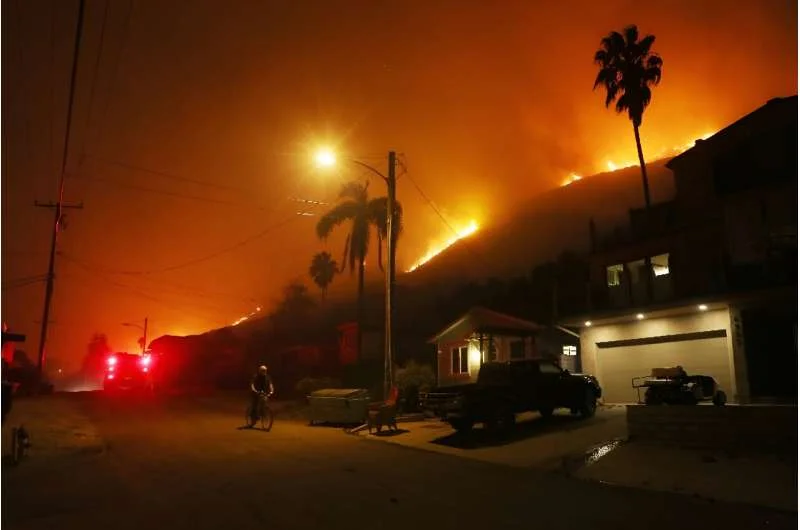A US climate expert has shocked scientists by claiming he specifically designed a bushfire study to highlight global warming, in a controversial attempt to expose alleged bias in a leading journal.
While supporters applauded Patrick T. Brown for highlighting what he called a one-sided climate “narrative” in academic publications, his move surprised at least one of his co-authors and angered the editors of the leading journal Nature.
The headline of a Sept. 5 article by Brown on the news site The Free Press was: “By publishing my article on climate change, I missed the whole truth.”
He said he consciously focused his study in the journal on the impact of high temperatures on wildfire risk, to the exclusion of other factors such as land management.
“I was just published in Nature because I stuck to a narrative I knew editors would like,” the article read. “Science isn’t supposed to work this way.”
Co-author was surprised
Stephen J. Davis, a co-author of the study and a professor in the Department of Earth System Sciences at the University of California, Irvine, told AFP that Brown’s comments caught him “off guard.”
“Patrick may have made decisions that he believed would help get the paper published, but we don’t know if another paper would be rejected,” he said in an email.
“I don’t think he has much evidence to support his strong claims about the biases of editors and reviewers.”
Brown is co-director of the climate and energy group at the Breakthrough Institute, a private nonprofit group that researches technological solutions to environmental problems, including the development of nuclear energy.
He did not respond to AFP’s request for comment on his September 5 revelations but has written extensively on his own blog and on X, formerly known as Twitter.
Ethical issues
In a series of tweets, Brown was applauded for her “courage”, “openness” and “transparency”. Others said his move raised ethical questions.
David Ho, a climate scientist at the University of Hawaii at Manoa, tweeted that presenting the study’s research “is optional, but bragging about it publicly is the next level.”
Ivan Oransky, co-founder of Retraction Watch, a blog that tracks retractions of scientific papers, said Brown’s move “ultimately feels like an ethically questionable operation.”
“Do scientists need to publish their work to save it? Absolutely,” Aransky told AFP. “He achieved this through a spectacularly flawed experiment in logic, which of course convinced all the people who were already convinced that scientists were not being rigorous and honest, especially about climate change.”
Natural brands are behaving ‘irresponsibly’
Nature editor-in-chief Magdalena Skipper called Brown’s actions “irresponsible” and said they reflected “poor research practices.” An important issue regarding other climate variables in the study was discussed during the peer review, she emphasized. The journal highlighted three new studies examining factors other than climate change linked to marine heatwaves, Amazon emissions and wildfires.
“When it comes to science, Nature has no better story to tell,” he said in a statement.
In response, Brown wrote: “As someone who reads, writes, reviews and publishes the Nature family of magazines, I think this is nonsense.”
“Publish or perish”
Scientists often complain about the pressure on young researchers to “publish or perish” and that research grants and tenure depend on the decisions of journal editors.
“Knowledgeable researchers tailor their research to maximize the likelihood that their work will be accepted,” Brown writes. “I know this because I am one of them.”
Brian Nosek, a psychologist and co-founder of the center, said at the time of publication that “it is easy to see how reviewers and journal editors might worry about how a difficult topic, especially a politically fraught one, will be perceived by the public.” For Open Science, an American organization that promotes transparency of scientific research.
“But science is at its best when it embraces this complexity and does not allow oversimplified ideological narratives to influence the way evidence is collected and reported,” he added.
“It’s sad but not surprising that Patrick feels he has to voluntarily participate in simplifying his job in order to pursue a career in science. In the long run, this will not benefit him, science, or humanity.”
Source: Port Altele
